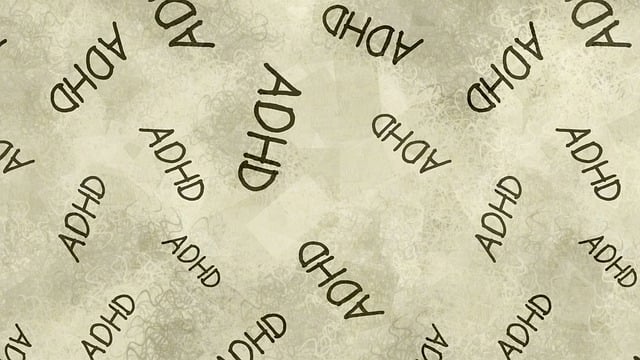Mental health professionals play a vital role in creating safe spaces during therapy for adults and couples, focusing on early risk identification and communication issues. By integrating journaling exercises, self-care practices, and de-escalation techniques, therapists foster emotional well-being and enhance resilience against potential risks. Effective communication strategies, including open dialogue and mindfulness, empower clients with coping skills, ensuring personalized interventions and positive therapeutic outcomes for adults and couples.
Mental health professionals regularly confront complex risks within therapy sessions, demanding a thorough understanding of risk assessment. This article navigates the crucial aspects of identifying potential hazards in therapy, employing strategies to mitigate these risks, and emphasizing the pivotal role of communication in enhancing safety for both adult and couples’ therapy. By adopting a comprehensive approach, professionals can foster secure environments that promote healing while mitigating potential harms. Effective communication serves as a cornerstone, enabling practitioners to address sensitive communication issues proactively.
- Understanding Risk Assessment in Mental Health Practice
- Identifying Potential Hazards in Therapy Sessions
- Strategies for Mitigating Risks: A Comprehensive Approach
- The Role of Communication in Enhancing Safety in Therapy for Adults and Couples
Understanding Risk Assessment in Mental Health Practice

Risk assessment is a cornerstone of mental health practice, enabling professionals to identify and mitigate potential risks associated with therapy for adults and couples. It involves a comprehensive evaluation of various factors that could impact a client’s well-being during treatment. By skillfully integrating communication issues into their risk assessment process, mental health professionals can foster a safe and supportive environment. This includes recognizing cultural sensitivity in mental healthcare practice, where understanding diverse backgrounds and beliefs is vital to avoid exacerbating existing challenges.
Beyond traditional risk assessment methods, incorporating mental wellness journaling exercise guidance can empower clients to actively participate in their healing journey. Promoting emotional well-being through specific techniques within therapy sessions not only enhances the therapeutic experience but also aids in early identification of potential risks. Such proactive measures contribute to a holistic approach, ensuring that both adults and couples receive individualized care tailored to their unique needs.
Identifying Potential Hazards in Therapy Sessions

Mental health professionals must be adept at identifying potential hazards within therapy sessions to ensure the safety and well-being of both clients and themselves. One key area to focus on is communication issues. Effective communication is a cornerstone of successful therapy, but it can also present risks if not managed properly. Whether it’s active disruption, passive resistance, or difficulty expressing emotions, these challenges require skilled navigation. By recognizing and addressing communication breakdowns early on, therapists can foster an environment conducive to emotional healing processes.
Furthermore, professionals should be attuned to the potential for clients to disclose traumatic experiences or express suicidal ideation during sessions. Such disclosures necessitate immediate attention through appropriate de-escalation techniques and referral to specialized care if required. Cultivating strong self-care practices and integrating effective mood management strategies are also essential components of mitigating risks, enabling therapists to provide safe and supportive spaces for clients navigating therapy for adults and couples.
Strategies for Mitigating Risks: A Comprehensive Approach

In the realm of mental health practice, mitigating risks is an essential component of risk management planning for professionals. A comprehensive approach involves a multifaceted strategy that addresses various facets of potential hazards. By prioritizing self-care practices, therapists can enhance their resilience and maintain optimal well-being, thereby reducing the risks associated with burnout and compassion fatigue. Incorporating regular mental health awareness sessions within professional development programs equips practitioners with effective coping mechanisms and enhances their ability to manage stress effectively.
Additionally, fostering open communication channels both within the therapeutic setting and among peers creates a supportive network. Encouraging clients, especially those grappling with therapy for adults or couples, to express their concerns and experiences contributes to an early detection system for potential risks. This proactive approach enables mental health professionals to implement timely interventions, ensuring client safety while promoting positive outcomes in therapy sessions centered around communication issues.
The Role of Communication in Enhancing Safety in Therapy for Adults and Couples

Effective communication is a cornerstone in enhancing safety during therapy for adults and couples. By fostering open dialogue, therapists create a secure environment where clients feel comfortable expressing their thoughts, emotions, and concerns. This two-way exchange allows for better understanding of individual needs, facilitative listening, and tailored interventions. When communicating effectively, therapists can identify potential risks or triggers early on, implementing appropriate strategies to mitigate them.
Incorporating techniques such as compassion cultivation practices and mindfulness meditation can further strengthen this process. These evidence-based methods promote self-awareness and emotional regulation in both the therapist and client, fostering a deeper sense of connection and trust. By integrating coping skills development through these practices, therapists empower clients to navigate challenges with greater resilience, ultimately enhancing the safety and effectiveness of therapy for adults and couples.
Mental health professionals play a vital role in enhancing the well-being of their clients, but they must also navigate potential risks within therapy sessions. By understanding risk assessment and implementing comprehensive strategies, therapists can create a safe environment for both adults and couples seeking help. Effective communication is key to identifying and addressing hazards, fostering trust, and ensuring positive outcomes in therapy for Adults and Couples. Embracing these practices enables professionals to provide quality care while mitigating risks associated with the therapeutic process.












